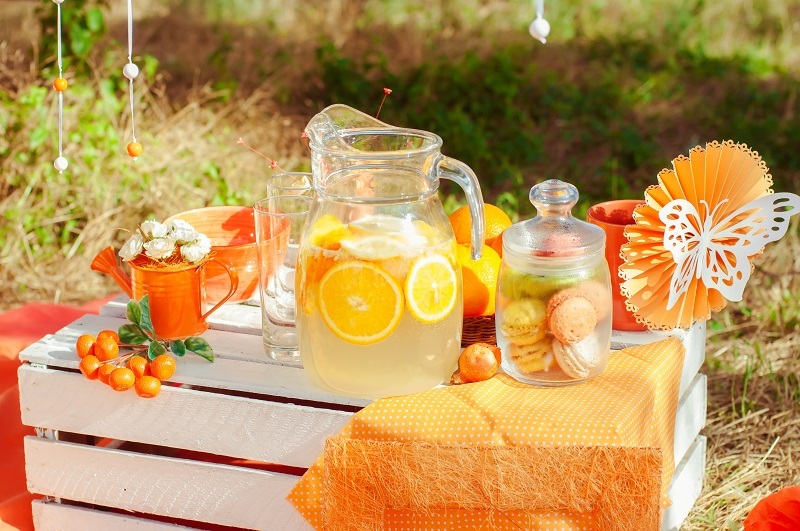Unveiling 7 Unexpected Truths About the World of Tulips
Posted on 26/08/2025
Unveiling 7 Unexpected Truths About the World of Tulips
Tulips are among the world's most beloved and instantly recognizable flowers, gracing gardens, bouquets, and festivals with their vivid colors and unique shapes. However, beyond their aesthetic allure lies a host of fascinating, often overlooked facts that reveal the true essence and impact of these botanical wonders. In this article, we delve deep into the secrets and surprising realities hiding within the gorgeous petals of the tulip, bringing you seven unexpected truths that every tulip enthusiast--and the merely curious--should know!
1. Tulip Origins: Far Beyond the Netherlands
When one thinks of tulips, images of vast Dutch fields often spring to mind. While the Netherlands is renowned for cultivating and celebrating tulips, the real origin story of these blooms is far older, more exotic, and stretches thousands of miles to the east. The true homeland of the tulip is found in the mountainous regions of Central Asia, including present-day Kazakhstan, Kyrgyzstan, and Uzbekistan.
From Wild Highland Slopes to Royal Gardens
- Tulips originally grew wild in harsh, rocky environments, thriving in well-drained soils that experienced extremes of temperature.
- Nomadic tribes admired their beauty, and over time, these flowers were selectively bred and eventually made their way to the winning gardens of the Ottoman Empire.
- The name "tulip" itself is believed to be derived from the Persian word for "turban," reflecting the flower's distinctive, rounded shape that resembles a wrapped turban.
It wasn't until the 16th century that tulip bulbs were introduced to Western Europe, sparking a phenomenon--and eventually an international trade--that continues to this day.
2. The Wild Ride of Tulip Mania
Few flowers have had as significant a cultural and financial impact as the humble tulip. In the early 17th century, the Netherlands experienced a speculative frenzy that has since become notorious in economic history: Tulip Mania.
The World's First Speculative Bubble
- At its peak, rare and particularly beautiful tulip bulbs were sold for exorbitant sums--sometimes equaling the price of a townhouse in Amsterdam!
- This fever-pitch speculation was driven partly by stunning and uncommon variations of tulip coloration, which were caused by a virus in the flowers.
- When the bubble burst in 1637, people were left financially ruined overnight, making Tulip Mania a cautionary tale about the dangers of speculative markets even today.
Tulips thus hold the unusual honor of being at the heart of the first recorded speculative bubble in history.

3. The Secret Behind the Tulip's Stunning Colors
Walk through a tulip festival and you'll see an explosion of colors--crimson, gold, purple, and delicate pinks, among countless others. But did you know the tulip's dazzling array of hues holds a scientific mystery?
Color from a Virus: Welcome to the World of 'Broken' Tulips!
- Many antique and fascinating tulip varieties display intricate streaks and feathered color patterns.
- These patterns, known as "broken" tulips, arise not from selective breeding but a mosaic virus that artificially interrupts the plant's natural pigment pathways.
- These viral infections were so prized during Tulip Mania that infected bulbs often became the most valuable of all.
Modern horticulturists now recognize the risks associated with the virus, but careful breeding has provided non-viral ways to create stunning tulip colors, allowing enthusiasts to enjoy the spectacular beauty safely.
4. Tulip Festivals: Celebrations of Beauty Worldwide
The enchanting world of tulips boasts vibrant festivals that stretch across continents--from North America to Asia. These festivals not only showcase the flower's beauty but also embody cultural pride and local creativity.
Must-See Tulip Festivals Globally
- Keukenhof Tulip Festival (Netherlands): Often called the "Garden of Europe," Keukenhof displays over 7 million bulbs in a mesmerizing spring spectacle.
- Canadian Tulip Festival (Ottawa): Born from a post-World War II gift of 100,000 bulbs from the Dutch Royal Family, this festival boasts amazing diversity and history.
- Istanbul Tulip Festival: Tulips are Turkey's national flower, and each April, millions of blooms transform the city's parks and streets.
- Skagit Valley Tulip Festival (USA): Held in Washington State, this American celebration draws enthusiasts from all over the world.
Attending one of these tulip events is the perfect way to witness the flower's cultural and aesthetic influence firsthand!
5. Tulip Symbolism: More Than a Pretty Flower
Tulips have woven themselves into the fabric of symbolism, religion, and even political history. These vibrant flowers are rich in meaning across different cultures and eras.
What Do Tulips Symbolize?
- Love and Passion: In the language of flowers, a red tulip signifies true love, while yellow can represent cheerful thoughts or even jealousy.
- Royalty and Prosperity: Especially in Ottoman Turkey, tulips served as emblems of wealth, power, and paradise.
- Renewal and Rebirth: Due to their early springtime bloom, tulips are often associated with new beginnings and hope.
- Unity and Charity: Some modern movements and charities have even adopted the tulip as a symbol of unity, peace, or remembrance.
Tulip bouquets and gardens thus carry messages that go far beyond their fleeting, spectacular beauty.
6. Surprising Uses for Tulips: Edible and Medicinal Facts
While most people enjoy tulips in gardens or vases, they have been used in surprisingly practical ways throughout history. Their utility extends from the dining table to the medicine cabinet!
You Can Eat Tulips--But with a Warning!
- Tulip petals have a mild, slightly sweet or cucumber-like flavor and have occasionally appeared in salads and as cake garnishes.
- During World War II's Hunger Winter, Dutch citizens relied on *cooked tulip bulbs* to survive; while not especially tasty, they provided needed calories when food was scarce.
- It's crucial to note that while some parts are technically edible, tulips can cause allergies or toxicity in humans and pets. Caution and clear identification are essential!
Medicinally, folk remedies have used tulips for centuries, primarily in poultices and infusions, though their efficacy has not been scientifically confirmed and internal use is not recommended today.
7. Tulips: Champions of Climate Resilience and Biodiversity
Did you know that wild tulip species are ecological survivors, perfectly adapted to tough conditions? This resilience not only preserves the blooms for future generations but holds crucial lessons for sustainable gardening in a changing climate.
Why Tulips Are Natural Survivors
- Bulbous Structure: Tulip bulbs store nutrients and moisture, allowing the plant to weather periods of drought and harsh winters.
- Wide Range: Wild tulips flourish from arid highlands to grassy steppes, supporting biodiversity by providing nectar to early-season pollinators.
- Modern Breeding: Horticulturists are creating hybrid tulips that thrive in various soils and climates, fostering greater biodiversity and disease resistance in both gardens and agriculture.
Respecting and cultivating diverse tulip varieties is not only beautiful but also helps support resilient and ecologically vibrant habitats, making tulip gardening a meaningful act for both home gardeners and conservationists alike.

Frequently Asked Questions About the World of Tulips
How Many Tulip Species Exist?
Tulips may seem homogeneous, but botanists recognize over 75 wild species and thousands of cultivated hybrids worldwide, each with unique characteristics and cultural histories.
When Is the Best Time to Plant Tulip Bulbs?
For most regions, autumn is ideal. Bulbs need cold dormancy over winter to bloom beautifully in spring. Always plant with pointed ends facing up for successful sprouting!
Are Tulips Suitable for Every Garden?
Tulips prefer well-drained soil and full to partial sun. However, new cultivars allow even gardeners in warmer, wetter climates to enjoy these spectacular flowers with proper care.
Why Are Tulips Important Economically?
The international tulip trade is a multi-billion dollar industry, especially for the Netherlands--home to the world's largest tulip exporters. Tulip tourism and festivals also provide significant economic boosts to host cities around the globe.
Conclusion: Why the World of Tulips Remains Endlessly Fascinating
The vibrant history, horticultural marvels, global commerce, and deeply-rooted symbolism of tulips render them vastly more intriguing than their lovely exterior might suggest. Whether you're a gardener, historian, or simply an admirer of nature, understanding the 7 unexpected truths about the world of tulips uncovers hidden layers of appreciation for this extraordinary bloom.
From Central Asian mountains to your backyard, tulips continue to captivate and inspire, offering beauty, lessons in resilience, and timeless stories all wrapped inside a single, unforgettable flower. Start exploring the wonders of tulips today, and see why these blooms truly are nature's colorful treasures.
Latest Posts
Easy-Care Plants to Liven Up Your Office
Unveiling 7 Unexpected Truths About the World of Tulips
How to Care for Poinsettias and Prolong Their Life





